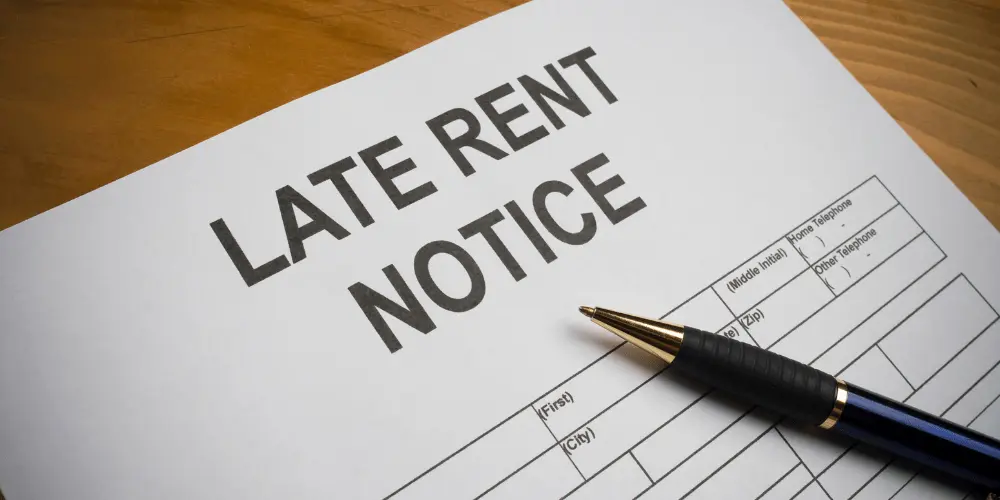
Falling behind on rent can happen to almost anyone. A sudden job loss, medical bills, higher utility costs, or unexpected family expenses can make it difficult to keep up with payments. The good news is that there are programs, resources, and services available to help renters get through difficult times. Acting quickly is the key. The sooner you reach out for help, the more options you will have to avoid eviction and protect your housing stability.
When you are behind on rent, you risk more than late fees. Continued missed payments can lead to eviction, which creates long-lasting financial and personal challenges. An eviction record can make it harder to qualify for affordable rental housing, apply for subsidized housing, or meet income limits for future assistance programs.
Being behind on rent also puts pressure on landlords and property managers, who must decide whether to negotiate or begin legal proceedings. For tenants, this creates stress and uncertainty. The most important step is to recognize the situation early and begin looking for assistance programs that can stabilize your household.
The very first step is communication. Contact your landlord or property manager as soon as you know you cannot make the full rent payment. Many landlords are more willing to work with tenants who are upfront about their financial struggles than with those who avoid calls or ignore notices.
When reaching out, consider asking for:
Document any arrangement in writing to protect both you and the landlord. This shows good faith and can prevent misunderstandings later.
If talking to your landlord is not enough, the next step is to look into financial assistance. Many local agencies and nonprofits offer programs designed to help tenants cover rental payments, utility bills, or other necessary expenses.
Some of the most common sources of financial assistance include:
If you are struggling with multiple bills, Credit.org’s guide on Prioritizing Your Monthly Bills can help you decide which payments to cover first while you apply for assistance.
Emergency rental assistance programs are one of the most important tools for tenants who are behind on rent. Created during the pandemic and supported by federal funds, ERA programs continue to help households today through local housing authorities and governments.
These programs can:
Because funds are often limited, renters should apply as soon as possible. Contacting your local housing authority or local government office will give you details on how to qualify, what documents are needed, and how long the process may take.

The ERA program (Emergency Rental Assistance) was designed to provide large-scale help to tenants who fell behind during the pandemic. While some federal programs have ended, many states and cities continue to operate ERA funds.
To apply, tenants usually need to:
Local housing authorities or community agencies manage applications, and many allow online submissions. Tenants who act early often have the best chance of approval before funds are exhausted.
Eligibility for rental assistance depends on factors like income limits, household income, and documentation. Each program is slightly different, but most require:
Programs often prioritize families with children, seniors, and people with disabilities. Eligible households may also qualify faster if they demonstrate a high risk of eviction.
Some programs pay rent directly to the landlord or property manager. This ensures rent payments are current and helps tenants avoid late fees or eviction filings. For renters, this kind of program provides immediate relief while they work toward financial stability.
Many households that fall behind on rent are also struggling with utility bills. Utility assistance programs may help cover electricity, water, gas, or even internet. Energy assistance programs can be especially important during extreme weather, helping families avoid utility shutoffs. Covering these costs frees up money for rent payments.
For long-term solutions, renters may consider subsidized housing or affordable housing options. In these programs, household income determines how much tenants pay. The government covers the remainder of the rent. Affordable rental housing may also be available through urban development projects or local governments. These programs support low incomes and provide housing stability for families that need it most.
Rental housing comes in many forms, from private apartments to subsidized units. Tenants facing eviction or frequent late payments may benefit from exploring affordable rental housing opportunities in their area. Many local agencies maintain lists of affordable housing or subsidized housing units with income limits attached.
Renters should contact their local agency or housing authority to ask about:
Though rental housing availability may be limited, applying to multiple programs increases the chances of success.
Rental assistance programs are only one part of the solution. Many services provide extra support to renters who are behind on rent.
These services can include:
If you are juggling other debts too, Credit.org’s article on Your Options When Behind on a Car Payment can help you make informed decisions about which bills to prioritize.
Keeping open communication with your landlord or property manager is essential. Many landlords prefer to work with tenants rather than go through costly eviction proceedings.
Tips to strengthen your conversation:
Tenants who maintain respectful, professional communication often find landlords are more willing to be flexible.
In some cases, even with assistance, eviction cannot be avoided without legal help. Free or low-cost legal services exist in most states to help tenants understand their rights. Attorneys can represent renters in housing court, assist with eviction defenses, and negotiate with landlords.
If you receive an eviction notice, do not ignore it. Seek legal help immediately. Legal aid offices and nonprofit services can provide advice at no cost or for a reduced fee.
Local governments and housing departments are key partners for renters seeking stability. A local housing authority can connect tenants with rental assistance, subsidized housing, and energy assistance. Community agencies also help eligible households apply for services, find resources, and complete required forms.
Contact options include:
Residents who apply early are more likely to secure funds before they run out.
Once immediate rent payments are covered, the next challenge is staying current. Housing stability depends on budgeting for rent, utilities, groceries, and other expenses. Families that use funds from an ERA program or other rental assistance should also make a plan for future payments.
Steps to maintain housing stability:
Credit.org’s Budgeting Calculator can help you track income, expenses, and necessary bills so you stay ahead of rent.
Preventing future problems requires planning. Tenants should focus on rent payments first, since losing housing makes it harder to manage other bills. Building even a small emergency fund can help with rent in case of job loss or unexpected expenses.
Additional strategies:
The Consumer Finance Protection Bureau’s renter protections page offers more details about programs designed to keep tenants housed.
In some cases, even with help, the rent may still be too high. When this happens, renters may need to consider other options, such as:
The National Low Income Housing Coalition offers research and tools to help families understand affordability issues and find more affordable rental housing. HUD also provides information on rental assistance programs and how to apply through local agencies.
Being behind on rent is stressful, but it does not mean eviction is inevitable. By contacting your landlord, applying for emergency rental assistance, and exploring subsidized housing or affordable housing, you can protect your home and your family.
Support is available through community services, legal help, local agencies, and federal programs. The most important step is to act early, communicate openly, and use the resources available to you.
If you are struggling with overdue rent, bills, or debt payments, reach out to Credit.org’s Distressed Renter Counseling. Our certified counselors can help you create a plan, connect you with resources, and give you the support you need to regain stability.